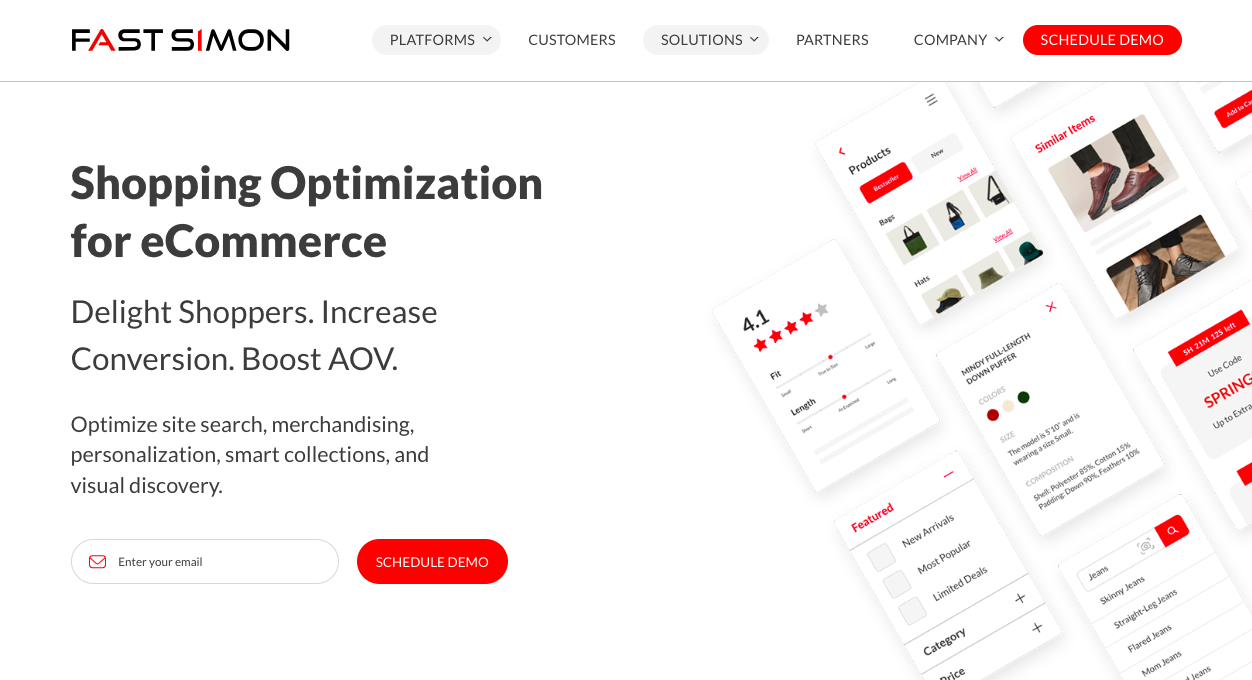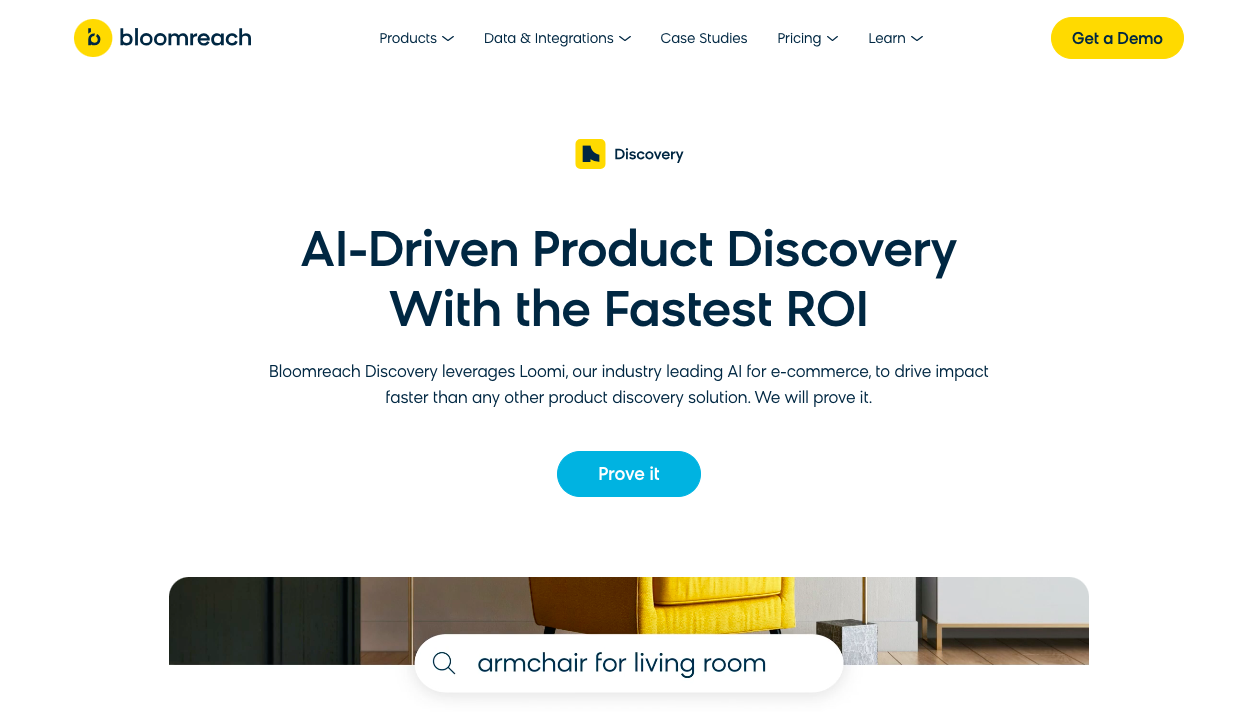eCommerce Personalization Strategies & Platforms to Boost Sales Fast
Implementing the right personalization tactics can transform an online shopping experience, making it more relevant and enticing for consumers
Updated November 19, 2024.

You know that feeling when you walk into a store and the employees greet you by name, making personalized recommendations based on your preferences? That's the power of personalization. In eCommerce, personalization can take your online store from good to great, boosting sales and fostering customer loyalty.
With the right strategies and platforms, you can showcase products that perfectly align with each customer's interests. By doing so, you offer exclusive deals that make them feel valued and deliver a seamless, personalized journey across all touchpoints.
Meet the Expert
Jameela Ghann is a seasoned online store owner with over a decade of eCommerce experience. Apart from running Alora Boutique, she's also the marketing manager for Fera Product Reviews.
3 Reasons Personalization Matters for Your eCommerce Business
Before we discuss the strategies and platforms, let's consider why personalization is crucial for your eCommerce business.
1. Increased Customer Engagement
When you present customers with personalized product recommendations, offers, and content that resonates with their interests, they're more likely to stick around and explore your offerings. By keeping customers engaged with these personalized touches, you're increasing the chances of making a sale and fostering a deeper connection with your brand.
» Discover the differences between B2C and B2B personalization
2. Higher Conversion Rates
Personalization technology isn't just about engagement; it's also a surefire way to boost your conversion rates. By displaying products and offers that are more likely to resonate with each visitor, you're significantly increasing the chances of them making a purchase.
In fact, a study by Monetate shows that conversion rates double from 1.7% to 3.4% when just three pages have personalized elements.
» Need more proof? See these recent personalization statistics
3. Enhanced Customer Loyalty and Retention
When customers feel understood and valued, they're more likely to become loyal advocates for your brand. Personalized experiences create an emotional connection that not only encourages repeat business but also turns customers into your biggest cheerleaders.
Just look at the success of Sephora's Beauty Insider program, which personalizes recommendations and rewards, leading to increased repeat purchases and customer loyalty.
4 eCommerce Personalization Strategies to Boost Sales
1. Dynamic Content Personalization
Dynamic content personalization is all about tailoring website content in real time to each visitor's behavior, preferences, or demographics
This strategy is particularly effective for returning visitors or customers, as you can leverage their past interactions to enhance their shopping experience through improved site search capabilities.
To implement dynamic content personalization, you'll need a robust content management system (CMS) that supports dynamic content. The CMS will need to be integrated with advanced analytics and personalization engines.
Example: Adore Beauty's homepage personalization saw a 17% increase in conversion rates after implementing the Tealium audiences stream.
2. Personalized Email Marketing
Personalized email marketing is another powerful strategy that tailors emails to customers' past behavior and preferences.
By sending messages that are directly targeted at the most likely buyers, you can effectively increase open rates, click-through rates, and conversions.
To implement personalized email marketing, you'll need an email marketing platform like Mailchimp or Klaviyo, combined with your customer relationship management (CRM) data. These tools allow you to successfully segment audiences based on behavior and preferences and automate personalized email campaigns.
» Need more help? See our top customer segmentation strategies
3. Personalized Recommendations
Personalized recommendations leverage algorithms to suggest products or services tailored to a user's past behavior, preferences, and insights from similar customers.
This approach is particularly beneficial for repeat visitors and customers, as it uses accumulated data to continuously improve the accuracy and appeal of recommendations, leading to increased average order value.
To implement personalized recommendations, you'll need to leverage machine learning algorithms and recommendation engines. These tools analyze vast amounts of data to identify patterns and predict preferences, ensuring that your recommendations hit the mark every time.
Example: While Spotify may not be an eCommerce platform, their Discover Weekly playlists and concert recommendations are prime examples of personalized recommendations done right. By leveraging listening habits, Spotify consistently delivers personalized value, keeping users engaged and subscribed.
» Not sure how? Check out our top product recommendation strategies
4. Personalized Pricing and Offers
Personalized pricing and offers tailor prices and special deals according to a user's behavior, purchase history, or loyalty.
This approach can be incredibly effective in enticing users with discounts or exclusive promotions tailored specifically to them.
To implement personalized pricing and offers, you'll need dynamic pricing algorithms and customer segmentation tools. Technologies like Polymatiks Intelligent Pricing on Shopify use AI and machine learning to predict optimal pricing strategies and identify eligible customers for special offers.
Top 4 Personalization Platforms to Use
Now that you understand the strategies, let's examine some top personalization software platforms that can help you bring them to life. Some offer advanced personalization with easy integration with platforms like Shopify, Magento, and WooCommerce. It ensures a consistent experience across the web, mobile, and email.
Improve Sales Through Personalization
At the end of the day, personalization is about building genuine relationships with your customers. It's about understanding their emotional needs and using personalization and merchandising to enhance their individual journeys, not just boost sales.
By focusing on understanding your customers through data analytics and tailoring experiences that anticipate their needs, you can make every interaction feel uniquely personal. Remember, personalization is a journey, and the more you invest in it, the more it will pay off.













